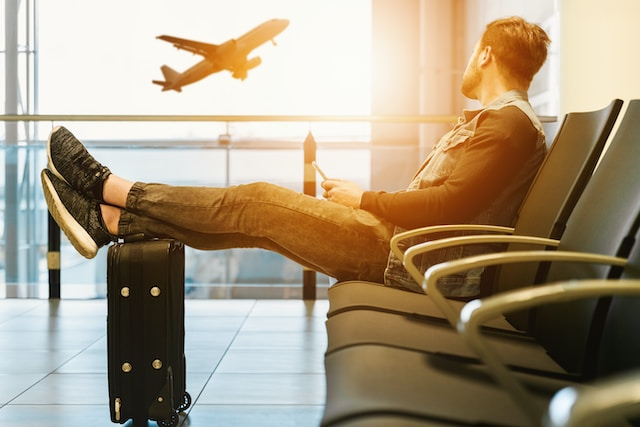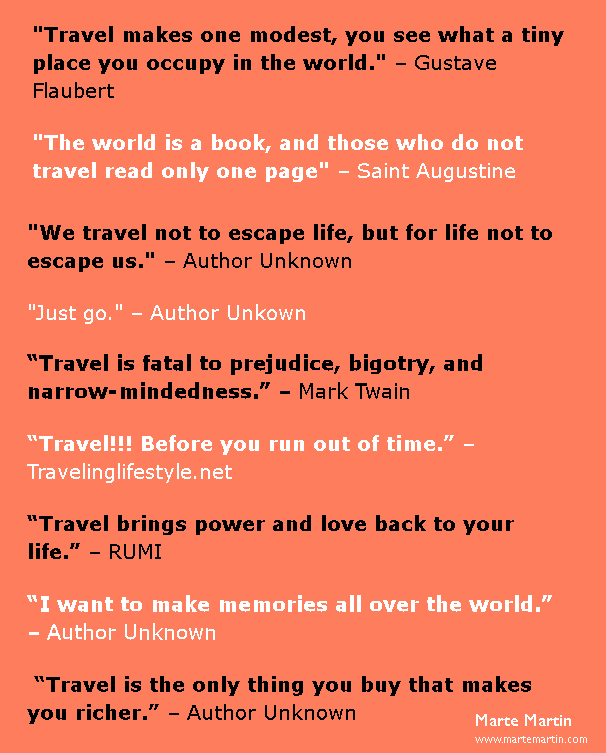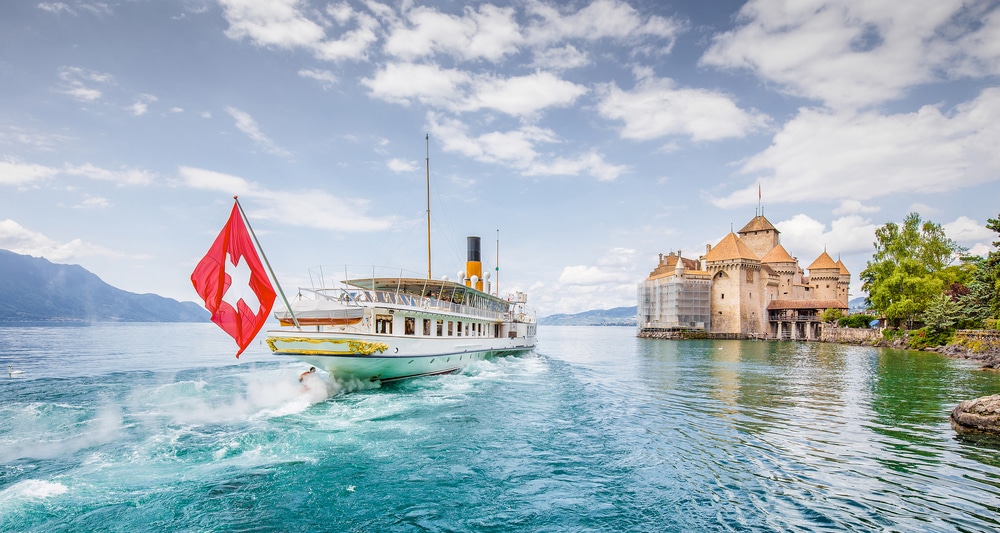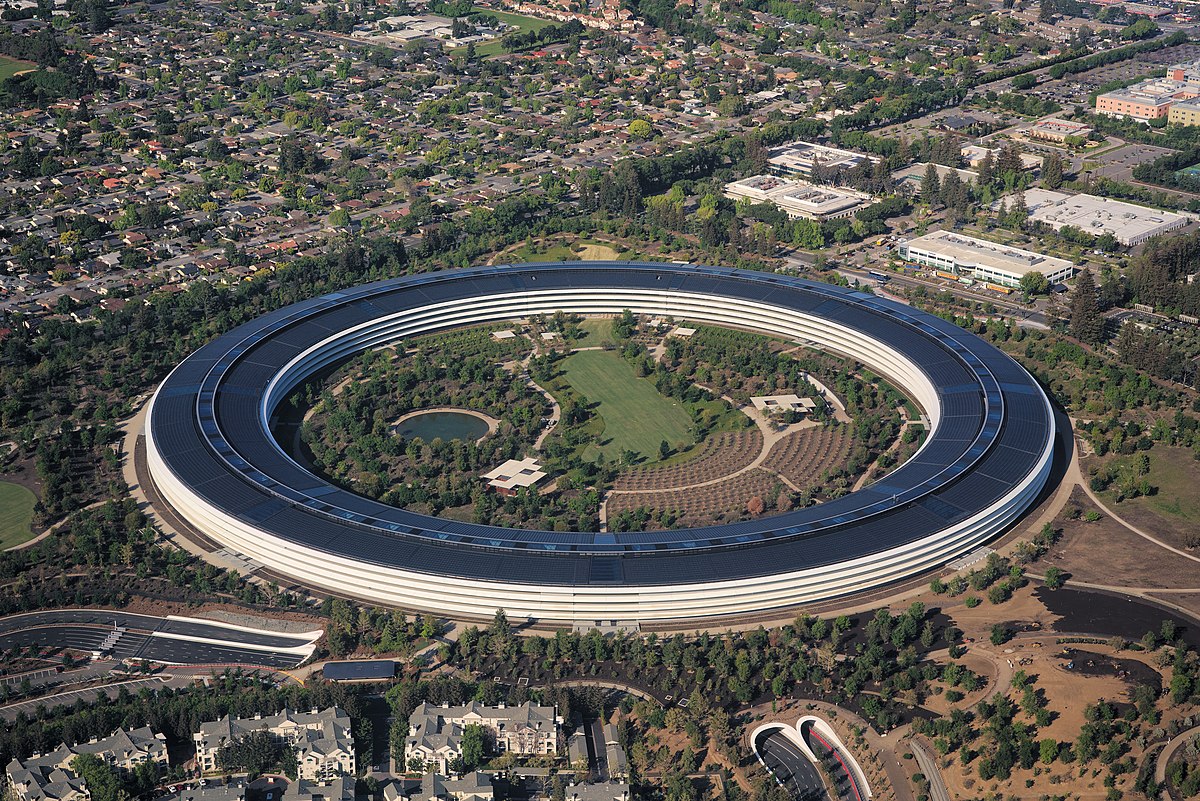Why Love to Travel
The PR of travel, and travel as a creative booster.
 Written by Marte Martin Written by Marte Martin
|
April 26, 2023 |
| SUMMARY |
These days, we all must travel because somehow we’ve managed to convince ourselves that traveling is an investment in ourselves we need to make. “Must love to travel” is even a requirement for today’s single person on dating apps. PART 1: The public relations (PR) of travel
PR aside, travel does have the potential to cause positive mental change. Research shows that traveling can enhance creative thinking, which in turn can be essential to achieving personal success. PART 2: What enthusiasts and scientists say about travel
But not all travel experiences will work towards a more creative life nor greater success – how we approach those experiences is critical to result in creative growth, both personally and professionally. PART 3: A coping industry, escapism becomes literal
For the most part, traveling means just that: going from one place to another. But since we travel so much, whether we love it or not, and since we 'invest' so much of our time away, we should probably engage in some self-reflection and mindfulness when we think of travel, just like when we do daily exercise, meditation, or recollection of our day. PART 4: A win-win alternative
- Most of the more popular travel-quotes you come across on the internet are part of marketing campaigns by the travel industry – an industry which moves billions and billions of dollars every year and which is currently going through a boom era.
- Travel is about exploring and developing a sense of belonging, it is about the human desire for adventure (the actual underlying desire) and the need for change.
- Even though traveling abroad might improve your creative thinking, you do not need to travel to reach that state of mind.
- Think of ways to engage in self-reflection and mindfulness when you project travel.
Get Marte's stories in your inbox!Sign up to email list and receive our articles, interviews, feature, and much more.
The public relations (PR) of travel
'Turkish Airlines - 5 Senses' x Jesper Gadeberg debut at 2018 NFL Super Bowl
These days, we all must travel because somehow we’ve managed to convince ourselves that traveling is an investment in ourselves we need to make. “Must love to travel” is even a requirement for today’s single person on dating apps.
What comes to mind when you think of the word, "travel"? Is it going on vacation? Getting away from work? Or maybe, is it being afraid of missing out on travel? Or even, jealous of others showcasing a global lifestyle?
Or do you ever ask yourself why people love to travel, so much? Surely there are things to gain from traveling like meeting new people, seeing new places, or going through new experiences. But aren’t we –often– making too much of a big deal out of travel?
When did going on vacation become a means of experience? How did marketers and corporations board millennials and almost everybody else on the 'experience train’, and why is it so difficult to get off it? When did traveling become synonym of cultural awareness and a way to gain perspective in life? When did traveling become a remedy for the human condition – just like taking an aspirin when we have headache? How does travel help us learn to enjoy life more or to appreciate what we already have?
Most of the more popular travel-quotes you come across on the internet are part of marketing campaigns by the travel industry – an industry which moves billions and billions of dollars every year and which is currently going through a boom era.
Travel has become so broad and popular that what seems to be happening in reality is that ‘the travellers’ are becoming ‘the locals’ and ‘the locals’ are becoming ‘the travellers’.
Maybe, perhaps, we should be asking more profound questions, such as:
- Are we undertaking an experience with the potential to change our lives or are we engaging in just another form of consumption?
- Are we immersing ourselves in authentic experiences or wall off in popular themes?
- Are we traveling with the purpose of really understanding a different way of life or are we just escaping our own?
Or maybe the simpler questions would be best to ask, like:
- Can’t we go somewhere just to go have a good time or get something done, and forget about any ‘to do lists’?
What enthusiasts and scientists say about travel
Travel PR aside, traveling does have the potential to cause positive mental change. Research shows that traveling can enhance creative thinking, which in turn can be essential to achieving personal success.
Enthusiasts and scientists alike recognize that traveling has the potential to cause positive mental change. More so, research shows that traveling can enhance creative thinking, which in turn can be essential to achieving personal success.
It's often said that travel is a basic human desire. It turns out that there's plenty of work on the psychology-of-travel and plenty of travel-industry PR out there to justify this popular saying.
Travel is about exploring and developing a sense of belonging, it is about the human desire for adventure (the actual underlying desire) and the need for change.
You might agree with the notion that travel stimulates the mind in many ways. You might also agree with the idea that we can stimulate the mind doing other things such as exercising, reading, coffee, making love, or taking drugs, to name just a few.
Another popular saying is that traveling makes us more open-minded, and while I did not find any scientific research that confirms or denies this, I personally tend to believe that yes, we are more likely to be open-minded if we're well travelled than if we’re not.
At the same time, I think we should accept the idea that traveling does not necessarily make us more open-minded and understand that the ‘open minded’ concept belongs to a basket of many different interpretations depending on who we ask –and with different meanings which often contradict each other.
Instead, what if we ask ourselves:
- Are cultural differences really that different? Or damn, what does 'culture' even mean?
- Are we even capable of differentiating race or culture from background?
- Is this collective urge to travel still a worthwhile compulsion?
- Why are we so willing to put distance between ourselves and everything we know?
What scientists say
According to psychologists, travel is not about relaxation, it is about the tedious act itself of putting distance between us and everything we know.
Scientifically speaking, creativity is related to how the brain is wired. The brain pathways are influenced by environment and habit, meaning that they are also sensitive to change: new language, new sensations, new weather, new sights, etc. And ‘change’ causes a variation in impulses through neurotransmitters (something to do with how chemical signals pass from nerve cell to nerve cell) which have the potential to refresh the mind and enable a more creative brain. [Getting the Most Out of Living Abroad: Biculturalism and Integrative Complexity as Key Drivers of Creative and Professional Success; Tadmor, Galinsky and Maddux, 2012]
Thoughts are bound by the familiar, and a bit of distance helps loosen the chain of cognition, making it easier to see something in the new old. Research shows that time abroad or away correlates with creative output, and that the most creative people are the ones who not only travel, but those who immerse themselves in other 'cultures' when they travel. Also meaning that we should do more looking in and not so much looking at.
When we leave behind the place where we spend most of our time, the mind is made aware of the ideas we had suppressed, or at least some of them. When we are away, we suddenly think about possibilities that would have never occurred to us had we not left home. And this aspect of traveling comes with the practical advantage of the times when we need to be creative about resolving situations or problems.
The connection between creativity and better mental and physical health is well established by research studies. ‘Creating’ makes people more conscious and certain, it makes people happier. It makes us more resilient and better equipped to problem solving in the face of hardship. Creativity gives us a sense of purpose. So, in other words, those who stay in boxes have trouble thinking outside of the box.
The business world too recognizes that international experience prepares people to work and compete in a global economy.
Get Marte's stories in your inbox!Sign up to email list and receive our articles, interviews, features,and much more.
A coping industry, escapism becomes literal
[But] not all travel experiences will work towards a more creative life nor greater success – how we approach those experiences is critical to result in creative growth, both personally and professionally.
Somewhere along the way, we realised that we weren’t going on vacation or on holidays just to have a good time or relax. As part of this phenomenon, we now travel to places to better ourselves, and instead of calling it ‘going on vacation’ we now call it 'travel'.
Researches have studied how psychological distance in reference to time away from a problem increases the likelihood of solving that problem. But even though traveling abroad might improve your creative thinking, you do not need to travel to reach that state of mind.
Apple Campus - Wikipedia Commons
At a minimum, you do not need to travel far as you can boost creativity by simply traveling to your neighbouring town or even neighborhood. Some people can unleash that creative thinking by merely going for a walk around the block or to the closest park.
Steve Jobs was knwon for going for long walks around the Apple campus, and believed his most creative ideas came when he was just walking around.
Whether you address or not the more profound questions is not the point I’m trying to make here. Again, I am not writing this article to turn you off towards traveling nor to call you a fool.
This is for the people dedicated to their dream of traveling the world but at the same time wonder if their dedication is causing to miss out on life. More particularly, I've written this article to celebrate a less popular but more meaningful perspective on travel, and that is that travel happens to boost creativity.
We don’t have to travel to travel – mental travel can be just as effective.
We don't have to go anywhere to find ourselves – traveling is not going to make us any closer to finding ourselves because there is no self to be found.
Traveling does not fix anything – if anything it takes us away from what needs to be fixed.
We can’t fill happiness with travel – our personal insecurities are ours to stay.
It might look like it does, but travel won’t make us smarter – we can't just plug-in intelligence into our brain, not yet at least.
We must take care of home because nobody else will – take care of our financials, and our personal and family duties.
A win-win alternative
For the most part, traveling means just that: going from one place to another. But since we travel so much, whether we love it or not, and since we 'invest' so much of our time away, we should probably engage in some self-reflection and mindfulness when we think of travel, just like when we do daily exercise, meditation, or recollection of our day.
Travel is no longer a luxury in the sense that the travel industry has become so big and so broad that travel is available to just about everyone for consumption, hence becoming another common product – in the same manner that designer-fashion has become available to everyone through the ‘fast fashion’ phenomenon.
To a great extent, this commoditization of travel or fashion is due to new technologies in information-sharing and manufacturing, or generally speaking, to the forces of a global economy.
On the one hand, things are becoming more attainable, and on the other, we can’t help but purchasing more things –including so called 'experiences'.
Globalization is sort of a function of ever increasing availability and ever-increasing consumption. And while it should produce more wealth and wellbeing for all, it will also create confusion amongst the people. Hence an alternative, just to be on the safe side.
People want to go out there and travel around, meet places and people. Not only I find travel irritating, but I also think that we are doing ourselves a disservice by not properly valuing the time we spend traveling. We don't seem to realize that the opportunity cost can be much higher than the actual rewards.
The argument I am making is that merely traveling will not change the way we are, it will not take our problems or prejudices away, as our biases will go with us wherever you go. Someone who has not travelled isn’t necessarily any less cultured or less enlightened than someone who has.
Leaving for a new place far is an easy way to leave behind the zone of what’s familiarly uncomfortable. Traveling also reminds us of all the things we don’t know, and for some reason we are propelled to believe we must know all those things. And as we are not all that different from one another culturally –globalization is making sure of that–, we marvel at the little things and as a result the travel rush fuels itself.
For some time now, I have subscribed to the notion that the mere exposure to other cultures is insufficient to bring about creativity.
Writing this article about 'love for travel', has helped me think of ways to engage in self-reflection and mindfulness when I project travel, and I’m sharing these with you. Pretty based stuff, I'd say.
When I think 'travel' I will:
Define what's important to me and my vision (it can be anything; it doesn’t have to be a life-changing vision) .
Block the noise, stop blaming others.
Stick to what’s important to me.
Listen and ask questions as I can learn a whole lot from people anywhere before, during, and after travel.
Remind myself to learn constantly about things I can apply to building my vision.
Think about making more decisions and doing less analysis – 'how can this travel help me assess situations more naturally?'
Ask myself how I can become more of a master of my domain, at home and at work.
Revisit how I'm taking ownership of my time – how am I accounting for my time and making every day count? Make the hours account for something.
Know that travel can ignite creativity and look forward to taking advantage of opportunities to do so.
It's OK to be content where you are, not matter where you are (exceptions apply, I suppose). No destination is denying you of a special experience – even if it's just walking around the corner. If you want to travel –far–, go for it, purchase that great air-travel deal. But remember that you are not missing out on life by not traveling, and you are –definitely– not missing out on life-changing experiences just because you don't travel.
I think we often undervalue what we have at home, that we should take better care of it, and that we might be overpaying to see what's out there.
This story Why Love to Travel appeared first on martemartin.com/resources.











